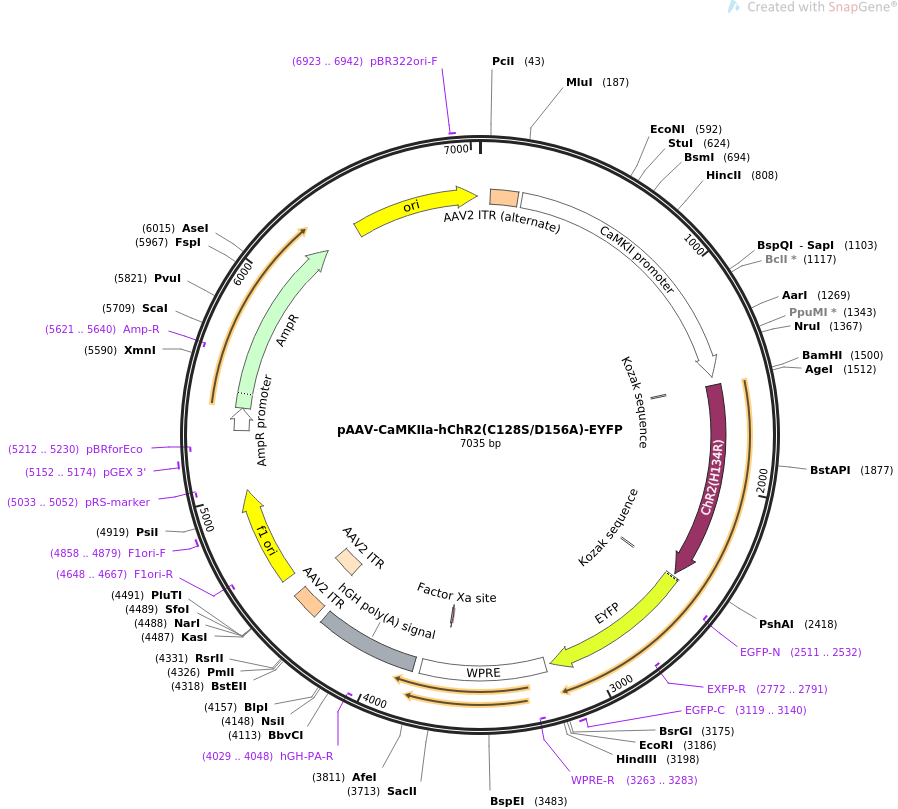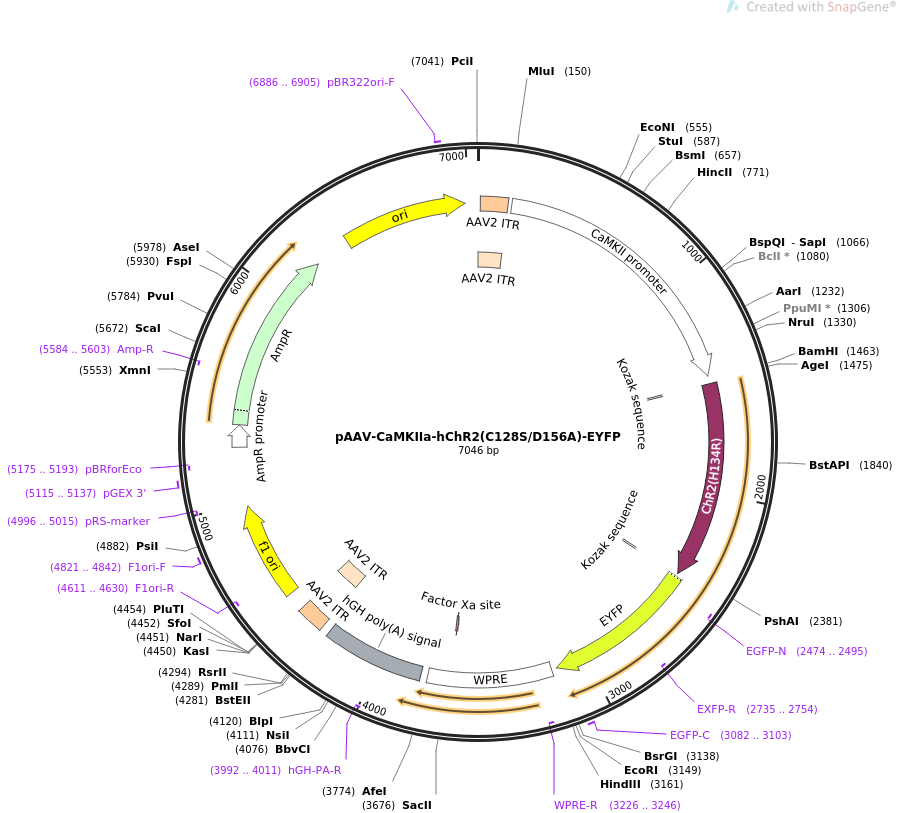-
PurposeAAV expression of CaMKII-driven stabilized step function opsin (SSFO) for optogenetic activation.
-
Depositing Lab
-
Sequence Information
Ordering
| Item | Catalog # | Description | Quantity | Price (USD) | |
|---|---|---|---|---|---|
| Plasmid | 35501 | Standard format: Plasmid sent in bacteria as agar stab | 1 | $85 | |
This material is available to academics and nonprofits only.
Backbone
-
Vector backbonepAAV
- Backbone size w/o insert (bp) 5385
-
Modifications to backboneAddition of a CaMKIIa promoter and a WPRE
-
Vector typeMammalian Expression, AAV
Growth in Bacteria
-
Bacterial Resistance(s)Ampicillin, 100 μg/mL
-
Growth Temperature37°C
-
Growth Strain(s)Stbl3
-
Copy numberHigh Copy
Gene/Insert
-
Gene/Insert namehChR2
-
SpeciesChlamydomonas reinhardtii
-
Insert Size (bp)1661
-
MutationC128S and D156A
- Promoter CaMKIIa
-
Tag
/ Fusion Protein
- EYFP (C terminal on insert)
Cloning Information
- Cloning method Restriction Enzyme
- 5′ cloning site BamHI (not destroyed)
- 3′ cloning site EcoRI (not destroyed)
- 5′ sequencing primer AGTCCTGCAGTATTGTGTAT
- 3′ sequencing primer GCAATAGCATGATACAAAGG (Common Sequencing Primers)
Resource Information
-
Articles Citing this Plasmid
Terms and Licenses
-
Academic/Nonprofit Terms
-
Industry Terms
- Not Available to Industry
Trademarks:
- Zeocin® is an InvivoGen trademark.
Depositor Comments
ChR2 variant harboring two amino acid substitutions which act to stabilize the conducting state of the channel to deactivate with a time constant of nearly 30 minutes following a brief pulse of activating blue light. Like previously published step function opsins, this stabilized step function opsin (SSFO) may be deactivated using yellow light (590nm). The stabilized open state of the channel allows for both lower power activation, meaning in some circumstances the light delivery system need not penetrate the brain, as well as for behavior in the absence of a tethered laser or other light delivery system.
These plasmids were created by your colleagues. Please acknowledge the Principal Investigator, cite the article in which the plasmids were described, and include Addgene in the Materials and Methods of your future publications.
-
For your Materials & Methods section:
pAAV-CaMKIIa-hChR2(C128S/D156A)-EYFP was a gift from Karl Deisseroth (Addgene plasmid # 35501 ; http://n2t.net/addgene:35501 ; RRID:Addgene_35501) -
For your References section:
Neocortical excitation/inhibition balance in information processing and social dysfunction. Yizhar O, Fenno LE, Prigge M, Schneider F, Davidson TJ, O'Shea DJ, Sohal VS, Goshen I, Finkelstein J, Paz JT, Stehfest K, Fudim R, Ramakrishnan C, Huguenard JR, Hegemann P, Deisseroth K. Nature. 2011 Jul 27;477(7363):171-8. doi: 10.1038/nature10360. 10.1038/nature10360 PubMed 21796121






